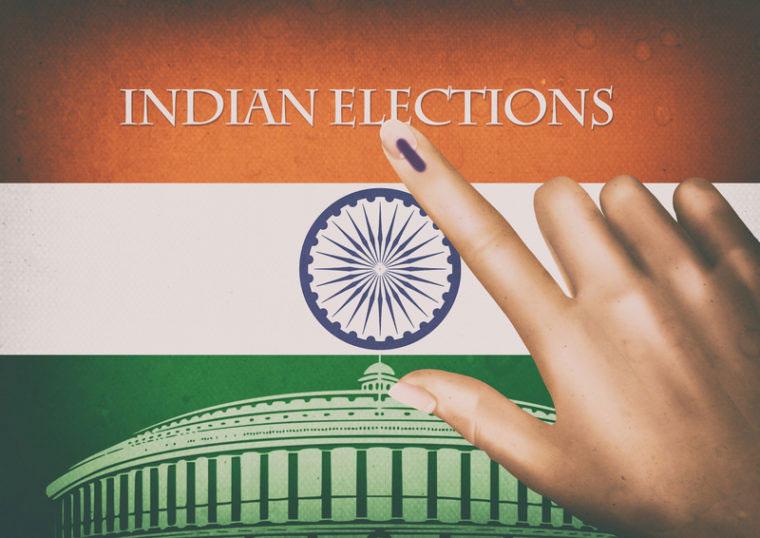Reply To:
Name - Reply Comment
 While President Joe Biden struggles for electoral survival, his friend Indian Prime Minister Narendra Modi can safely expect resounding approval for a third straight term at India’s general elections starting next Friday, April 19.
While President Joe Biden struggles for electoral survival, his friend Indian Prime Minister Narendra Modi can safely expect resounding approval for a third straight term at India’s general elections starting next Friday, April 19.
This will be a momentous election and an inflection point in India’s growth trajectory and place in the world. Like any powerful leader, Modi is both adored by many Indians who hope to finally encounter prosperity, human dignity and better lives and reviled by others who are losing influence in a fast-changing Indian democracy.
Modi’s victory with a large majority of seats in parliament is almost certain, making his democratic power base the most stable anywhere in the world at this time. As such, he could be Biden’s most effective partner in the global south and emerging economies.
By 2028, India, currently the world’s fifth largest economy, is expected to overtake Germany and Japan to rank third after the United States and China. India can achieve at least 6% average annual growth through 2030 and longer-term growth of 8%. Modi expects to set the foundations for lifting India to developed country status by 2047, to mark its first century as a free nation.
Many around the world are observing in awe the march of nearly a billion eligible voters to polls across the country until June 1 with results expected after counting on June 4. More than 2,400 political parties have put up candidates for 543 seats in India’s Lok Sabha, or lower house of parliament.
For Modi’s critics in India and the US and Europe, the chief questions are whether he is truly dedicated to upholding democracy or is an autocratic Hindu-majoritarian wolf in sheep’s clothing.
These are flawed questions because most Indian voters now prefer to emphasize their own heritage rather than being acolytes of the religious and cultural heritages of 18th century Enlightenment in Europe.
It is through the prisms of Enlightenment values that Western thinktanks, human rights watchdogs and policy makers stand in moral judgement on India and find that Modi falls grievously short.
They have branded Indians as being “partly free” despite the nation’s robust electoral democracy and vociferous civil society. They allege that Hindu majoritarianism is snuffing out religious space for India’s 200 million Muslims although Muslims have always turned to Indian laws and democracy for protection and rejected rebellious radical Islam. They allege that Modi is curbing freedom of expression and association despite India’s ferocious trade unions, press and media. By some estimates, India has 400 television channels and over 100,000 print outlets in multiple languages, which far exceed any other country and the ability of any government to muzzle.
The Enlightenment’s central doctrines were individual liberty and religious tolerance, in opposition to an absolute monarchy and the power of religious authorities. They emerged from European Christianity’s 150 years of religious wars followed by wars among European empires. They were capped by the 20th century’s catastrophic World Wars and the Cold War against the Europe-born ideologies of Fascism and Communism. Now, dooms-day nuclear weapons threaten annihilation to all of us.
Many Indian voters do not want to structure their democracy around Enlightenment values that brought such human suffering. So, they are forcing their leaders, like Modi, to listen to their civilizational values at home and carry their voices to the world.
Currently, Indian democracy stands apart from others because of steadfast voter support. In comparison, US democracy is in tumult, even decline, because of the electorate’s intense polarization stoked by Biden’s presidential rival Donald Trump. Such a messy US democracy is no longer worth emulating.
Similarly, almost all of America’s European allies are stumbling under fragile coalition governments and domestic politics torn by demagogic populism. Worse, they now fear another massive war in Europe.
Democracies in the Biden-led West are mired in voter strife that is scuttling efforts to overcome existential challenges like persistent inflation, irrepressible immigration, the devastating Ukraine and Gaza wars and Iran’s new hot war with Israel. They are also sliding into a quagmire of security tensions with the authoritarian triad of Russia, China and Iran.
Against this troubling backdrop, democracy as adopted by Indian voters stands like a beacon of stability and predictability although Modi continues to be disliked, even hated, by most of the Indian elite of mainstream intellectuals, professionals and media.
Those elites enjoyed almost all the reins of power in India for 60 years before Modi won his first five-year term in 2014. Now, they face disappointment because to their chagrin he seems to have won the hearts of many middle-class and poorer Indian voters in most parts of the country.